The Power of Writing Your Prayers | Answered Prayer Series
Discover how writing your prayers through the Answered Prayer Series can bring peace, clarity, and renewed faith. Learn how this gentle practice helps you draw closer to God, find strength in waiting, and see His faithfulness in every season of life.
M. Cecil Martin
10/19/20254 min read


The Power of Writing Down Your Prayers
She sat at the kitchen table before dawn, coffee cooling beside her, trying to pray. The words swirled in her mind, worries about her children, questions about the future, gratitude for small mercies but they felt scattered, like leaves caught in wind. Then she reached for a pen. And as the ink met paper, something shifted. The chaos quieted. The prayers that had been tumbling over one another suddenly found their shape. This, she realized, is how I hear myself. This is how I hear Him.
That morning became her first moment of prayer journaling the beginning of a quiet practice that would soon become her favorite way to meet with God.
When Prayer Feels Scattered
We live in a world of constant noise. Our thoughts race faster than we can catch them, and even in our quietest moments, the mind wanders. We begin to pray and remember the laundry. We lift up a burden and think of tomorrow's meeting. We long to meet with God, but our attention fractures before we've said amen.
This isn't failure. It's simply what it means to be human in a hurried world.
But prayer journaling offers us a gentle remedy a way to gather our scattered thoughts and place them, one by one, before the One who never loses track of a single word we speak.
Putting Pen to Paper Changes the Heart
There's something almost mystical about the act of writing. It slows us down. It requires us to choose our words more carefully, to sit with our emotions rather than rush past them. When we write our prayers, we're no longer just thinking about praying, we're actively engaging our whole selves in the conversation.
How writing down your prayers deepens faith isn't complicated theology; it's simple presence. The hand that moves across the page carries the heart with it. Worry becomes surrender as you write, "Lord, I don't know what to do, but I trust You." Confusion transforms into clarity when you see your questions spelled out honestly before God. And silence that uncomfortable, uncertain silence becomes intimacy when your pen keeps moving and you discover He's been speaking all along.
The Psalmist knew this. David writes, “Trust in him at all times; ye people, pour out your heart before him: God is a refuge for us.” (Psalm 62:8, KJV) To pour out your heart is to empty it completely, holding nothing back. And sometimes, the only way to truly pour is to write until the vessel is empty and you can finally breathe again.
The Bible's Written Prayers
Scripture itself testifies to the power of faith journaling. The Psalms are David's written prayers raw, honest, beautifully human conversations with God. He didn't hide his fear or dress up his doubt. He wrote it all down: the praise and the lament, the confidence and the questioning.
The prophet Habakkuk took this even further. God told him, “Write the vision, and make it plain upon tables, that he may run that readeth it” (Habakkuk 2:2, KJV). Write it down. Make it clear. Let it be something you and others can return to, can remember, can run with.
When we write our prayers, we're following a biblical tradition that spans thousands of years. We're joining a chorus of saints who understood that some truths are too important to leave unrecorded, some prayers too precious to let slip away into forgetfulness.
Remembering God's Faithfulness
Perhaps the greatest gift of keeping an answered prayers journal is this: it becomes your personal testimony. It's your collection of stones of remembrance, marking every place God has met you.
Months from now, when you're walking through another valley, you'll flip back through those pages. You'll see the prayer you wrote in desperation and just beneath it, dated weeks later, your own handwriting declaring, "He answered." You'll remember the waiting season that felt endless, and you'll see with your own eyes how God was faithful through every silent day.
This isn't just about keeping records. It's about building altars of remembrance in your own life, the way Joshua built stones by the Jordan so Israel would never forget how God brought them through. Your journal becomes sacred ground a place where you can return and say, "Look. He was here. He is faithful. He will do it again."
A Gentle Invitation to Begin
You don't need eloquent words or perfect penmanship. You don't need a leather-bound journal or a structured system. You simply need a willing heart and the courage to be honest before the God who already knows every unspoken word.
Start small. Write one prayer today. Pour out what's heavy. Ask for what you need. Thank Him for what He's already done. Date it. And then watch, watch how He meets you on those pages, how clarity comes, how peace settles, how faith deepens line by line.
Writing your prayers isn't about becoming a better writer. It's about becoming more present with the One who's been waiting for you all along. It's about creating space where your heart can slow down enough to hear His voice. It's about holding onto hope by holding onto evidence that God has never once failed to show up.
So, pull out that notebook. Pour your coffee. Open your heart. And begin.
May every word you write become a reminder that God still listens, and His answers often begin with a whispered prayer on paper.
If you’d like to continue reflecting on gratitude and God’s goodness, explore our 30 Days of Gratitude devotional journal a companion for daily thanksgiving and prayer.


